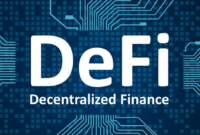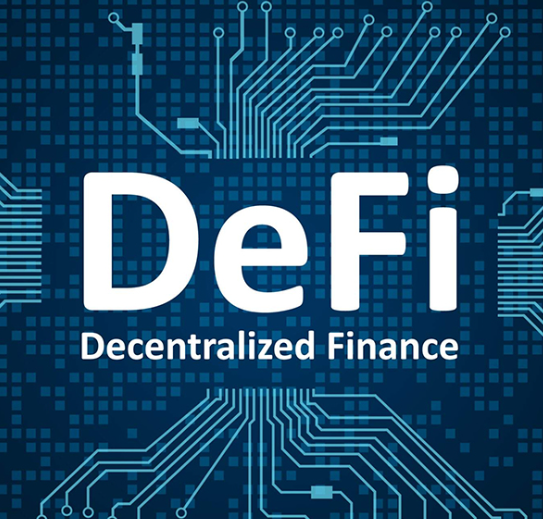
bbc.towzdog.com – Risks in DeFi Investing: Navigating the New Financial Frontier Decentralized Finance (DeFi) has captured the attention of investors and financial enthusiasts alike, promising innovative opportunities and high yields. However, with these opportunities come significant risks. In this article, we will explore the various risks in DeFi investing, helping you understand the potential pitfalls and how to navigate them effectively.
Understanding DeFi
What is DeFi?
DeFi, or Decentralized Finance, refers to a broad category of financial applications in cryptocurrency or blockchain geared toward disrupting financial intermediaries. It enables users to lend, borrow, trade, and earn interest on their assets without the need for traditional banks or brokers. Built on blockchain technology, DeFi operates through smart contracts—self-executing agreements coded into the blockchain.
The Appeal of DeFi
DeFi offers several advantages, such as:
- Accessibility: Anyone with an internet connection can participate.
- High Yields: DeFi platforms often provide significantly higher interest rates compared to traditional banks.
- Transparency: Transactions are recorded on the blockchain, ensuring that users can verify all activities.
However, the allure of high returns can lead investors to overlook the inherent risks involved in DeFi.
Major Risks in DeFi Investing
1. Smart Contract Vulnerabilities
What Are Smart Contracts?
Smart contracts are automated agreements that execute predefined actions when certain conditions are met. While they offer efficiency and security, they are not infallible.
Risks Involved
- Coding Errors: Bugs in smart contract code can lead to vulnerabilities, allowing malicious actors to exploit them.
- Audit Failures: Not all DeFi protocols undergo thorough audits, which increases the risk of undiscovered vulnerabilities.
For instance, the infamous bZx hack in 2020 occurred due to a vulnerability in its smart contract, resulting in losses exceeding $1 million.
2. Market Volatility
Understanding Market Volatility
The cryptocurrency market is notoriously volatile. Prices can fluctuate dramatically within short periods, which is particularly pronounced in DeFi tokens.
Implications for Investors
- Asset Devaluation: The value of assets can drop suddenly, leading to significant losses.
- Liquidation Risks: Many DeFi lending platforms require collateral. If the value of your collateral falls below a certain threshold, your assets may be liquidated to cover your loan.
For example, if you borrow against a volatile asset and its price plummets, you might face immediate liquidation, resulting in lost collateral.
3. Impermanent Loss
What is Impermanent Loss?
Impermanent loss occurs when providing liquidity to a decentralized exchange. It refers to the temporary loss of funds that can happen when the price of deposited assets changes compared to when they were deposited.
How It Works
When you provide liquidity to a trading pair, you receive a portion of the trading fees. However, if one asset in the pair appreciates significantly while the other depreciates, you may end up with less value compared to simply holding the assets.
For example, if you provide liquidity to an ETH/DAI pool and ETH’s price skyrockets, you’ll receive less ETH back when you withdraw than if you had just held onto your ETH.
4. Regulatory Risks
The Evolving Regulatory Landscape
As DeFi continues to grow, governments and regulatory bodies worldwide are paying closer attention. While DeFi operates under a decentralized model, it does not exist outside the realm of regulations.
Potential Outcomes
- Increased Scrutiny: Regulatory bodies may impose stricter guidelines, impacting how DeFi protocols operate.
- Compliance Issues: If a platform does not comply with regulations, it could be forced to shut down or face legal repercussions.
For instance, the SEC has started to classify certain tokens as securities, which could impact many DeFi projects if they are deemed non-compliant.
5. Lack of Consumer Protections
Understanding Consumer Protections in DeFi
In traditional finance, consumer protections exist to safeguard investors’ interests. However, in DeFi, these protections are minimal or nonexistent.
Risks for Investors
- No Insurance: Unlike traditional banks, DeFi protocols typically do not offer insurance on deposits.
- Fraud and Scams: The anonymous nature of DeFi can attract bad actors who may launch fraudulent schemes or rug pulls.
For example, in 2021, multiple projects were subject to rug pulls, where developers abandoned their projects after attracting significant investments, leaving investors with worthless tokens.
How to Mitigate Risks in DeFi Investing
1. Conduct Thorough Research
Before investing in any DeFi project, it’s essential to conduct due diligence. Look for:
- Audited Protocols: Ensure the platform has undergone rigorous security audits.
- Community Feedback: Check forums and social media for user experiences and reviews.
2. Diversify Your Investments
Diversification can help mitigate risks. Instead of putting all your funds into one DeFi project, consider spreading your investments across different platforms and asset types to reduce exposure to any single point of failure.
3. Use Established Platforms
Opt for well-known and established DeFi platforms that have a proven track record. Popular platforms like Aave, Compound, and Uniswap have demonstrated reliability and security over time.
4. Understand Your Risk Tolerance
Every investor has a different risk tolerance. Assess your financial situation, investment goals, and risk appetite before diving into DeFi. Only invest what you can afford to lose, especially in high-risk projects.
5. Stay Informed
The DeFi landscape evolves rapidly. Stay updated with the latest trends, news, and developments in the space. Follow reputable sources and join community discussions to enhance your understanding and make informed decisions.
Conclusion
Investing in DeFi presents exciting opportunities, but it is not without its risks. From smart contract vulnerabilities and market volatility to impermanent loss and regulatory challenges, understanding these risks is crucial for successful navigation in this new financial frontier.
By conducting thorough research, diversifying your investments, and staying informed, you can mitigate risks and make educated investment choices in the DeFi space. Remember, while the potential for high returns is enticing, careful planning and risk management are essential for sustainable success.
For more insights into the world of cryptocurrencies and DeFi, visit CoinMarketCap for the latest updates and data. Happy investing!




